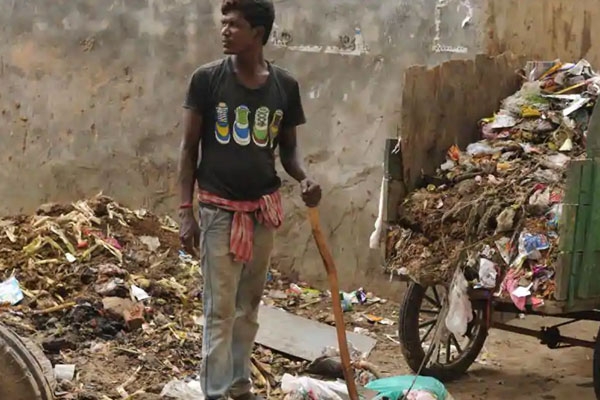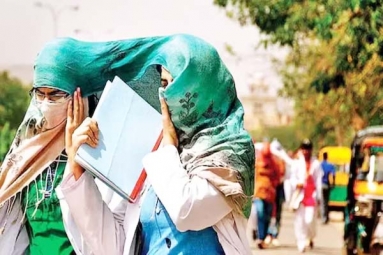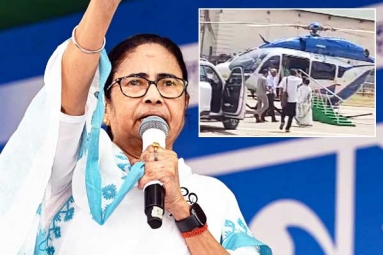
(Image source from: hindustantimes.com)
Lakhs of sanitation workers at a higher risk of suffering with COVID-19 since they pick medical and contaminated waste. The question is whether they are respected and appreciated equally for their efforts?
Pawan, a 36-year old migrant worker from UP, who picks garbage from 100 houses in Delhi says “We don’t get the same respect as doctors, other medical staff even when we put our health at risk every day. Our work is still not considered as an essential service”
In the informal sector, among the 40 lakh waste pickers and garbage collectors employed by States, Pawan is one of them and he expressed his feeling which is completely valid.
Unlike the health service facilities given to residential colonies, hospitals, and commercial establishments. The sanitation or waste pickers live without taking safety precautions, they don’t get social security, face discrimination, and manage to keep the city clean. Thus, these workers are at equal risk.
When Pawan was asked if he feared being infected, he said, he was scared but not as much as dying with hunger as he has five daughters to take care of back home.
The waste management authorities are under pressure to find a way to dispose the waste from hospitals, quarantine centers, and home quarantine for suspected Covid-19 patients.
Besides, the sanitation workers and waste pickers can easily be the carriers of this virus even before it can affect someone. It is likely to happen because face masks, gloves, tissues, cotton swabs and syringes of COVID-19 patients are being disposed.
To work on this challenge, the Central Pollution Control Board (CPCB), in the month of March had set guidelines for safe disposal of waste generated during treatment, diagnosis and quarantine of confirmed or suspected Covid-19 patients despite there being Bio-Medical Waste Management Rules (BMW), 2016.
They updated guidelines to ensure that all the waste generated during testing and treatment of coronavirus patients is scientifically disposed of, as this virus is highly contagious.
Similarly, for the households and quarantine camps too they set guidelines on safely discarding waste in yellow-colored bags and it was asked to be given to the authorized waste collectors engaged in ULBs.
But does it stop here?
New England Journal of Medicine published a paper in which it was clearly mentioned that the virus stays on surfaces such as cardboard for 24 hours, more than three days on plastic and metallic surfaces.
Dr Jugal Kishore, head of the Public Health Department at Delhi’s Vardhman Mahavir Medical College and Safdarjung Hospital said that all waste or even food that comes in contact with coronavirus is dangerous. Therefore, Bio-Medical Waste Rules (BMW), 2016, decided on disposing hazardous waste in incinerators.
In all these days of lockdown, additional 11.4 tonnes of hazardous waste came out from households. Further, to reduce the possibility of this infection, all waste, including food, from hospitals, quarantine centres, isolation wards, home care of suspected Covid-19 patients are being treated as hazardous waste.
Doctor Kishore said that in bigger hospitals all the necessary precautions are taken. However, in small areas where there are insufficient facilities or none, it is tough to handle the situation of coronavirus that is spreading.
Now, in India, the demand for Personal Protective kits (PPE), masks and gloves to safeguard doctors, nurses and other frontline workers against Covid-19 transmission would be more. This situation was in China as well.
Wuhan, Hubei’s capital city from where the coronavirus started, got to collect five times the medical waste more than usual.
From 40 metric tones per day to 240 metric tones per day, the waste generation increased. In order to manage this waste, they had to construct a new waste treatment plan. This was mentioned by on of the spokesperson of China’s Government.
In Pune and Pimpri Chinchwad, face masks were dumped. The waste pickers would have knowingly or unknowingly picked the masks and other waste. Households didn’t know what to do with them. Then in Delhi, they formed a campsite for migrant workers in Sharan Vihar area.
The volunteers picked surgical masks, gloves, syringes, tunics, gowns, empty tablet packets, and stuffed inside blue bags. They collected garbage from hospitals and brought them back to the campsite to further segregate it and eliminate the risk for residents who live around the area and themselves.
Across India for most of the garbage collectors to manage household waste is quite difficult. Dry and wet waste not being segregated is one of the biggest reasons why medical and general waste is being mixed.
After Indian Express had a conversation with Resident Welfare Associations in Delhi and Bengaluru, they mentioned the lack of segregating waste can be one of the biggest reasons for COVID-19 to spread. Especially where masks and napkins are disposed.
Brigadier R S Murthy (retd), president of HSR Layout Sector-2 Residents’ Welfare Association, Bengaluru, said “We are seeing a lot of masks carelessly thrown away on the roads, footpaths, and even into water bodies and stormwater drains in the locality. This issue can be resolved by stopping it right at the source – with the government banning the use of non-cotton masks in households.”
Handling this pandemic in India can be difficult with inefficient waste management.
This pandemic as made everything uncertain at this point of time. However, it has taught people of the value of sanitation workers during this time.
There was a study conducted a civil society organization, on sanitation workers in Tamil Nadu’s Coimbatore and Tiruchirappalli last month, this was named Praxis. To carry on with this study, 45 people were interviewed and at least 82 per cent of them had to say that society will respect sanitation workers even better after the lockdown.
One of the workers mentioned that they were not as respected as they are after COVID-19 started. People have changed a little. A sanitation worker from the Arunthathiyar community in Tiruchirapalli, Bhaskar K, said “People have started to respect us solely for the work we do, the same work for which we were looked down for years.”
Due to the pandemic, people have started to open their eyes and respect the sanitation workers. Hopefully, these workers are given the same respect even after the lockdown.
By Neha Makhija









